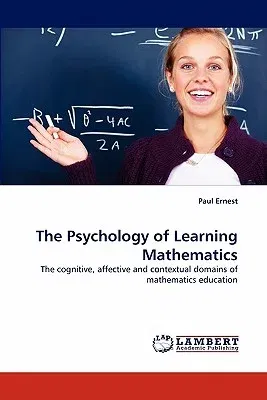Paul Ernest
(Author)The Psychology of Learning MathematicsPaperback, 25 February 2011

Qty
1
Turbo
Ships in 2 - 3 days
In Stock
Free Delivery
Cash on Delivery
15 Days
Free Returns
Secure Checkout
Print Length
164 pages
Language
English
Publisher
LAP Lambert Academic Publishing
Date Published
25 Feb 2011
ISBN-10
3844313060
ISBN-13
9783844313062
Description
Product Details
Author:
Book Format:
Paperback
Country of Origin:
US
Date Published:
25 February 2011
Dimensions:
22.86 x
15.24 x
0.97 cm
ISBN-10:
3844313060
ISBN-13:
9783844313062
Language:
English
Location:
Saarbrucken
Pages:
164
Publisher:
Weight:
249.48 gm

